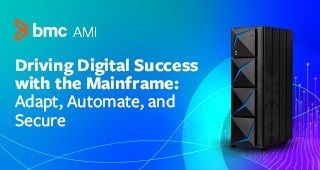The breakneck speed of technological change means it’s far more compelling to look forward than backward, which is why people often mistakenly assume that old technologies will disappear into the rear view as new ones emerge. Before the turn of the millennium, for example, IT experts were already predicting that new technologies such as cloud computing would spell doom for the venerable mainframe. And yet, decades later, the mainframe remains the most efficient and dependable computing platform in the world. Indeed, the problem is that it has in large part outlasted the careers of the very people who made it what it is today.
As mainframers retire in droves, they take valuable knowledge with them that may prove impossible to replace. Forrester Research reported that 23 percent of mainframe developers retired between 2013 and 2018, and some 63 percent of those positions remain vacant. The problem is only going to get worse, as BMC’s 2019 Mainframe Survey indicates that 37 percent of mainframe developers were between the ages of 50 and 64.
The Rise of the Mainframe Generalist
Even as their subject matter experts retire, enterprises continue to rely on the same tried and true technology that NASA relied on in its bid to put astronauts on the moon. IBM’s Information Management System (IBM® IMS®) was one of the first database systems to be made commercially available, and it remains in use today by around 75 percent of Fortune 1000 companies and thousands more businesses around the world. The system’s exceptional reliability has made it a fixture, particularly in large financial institutions, but IMS database administrators (DBAs) are becoming increasingly rare.
In order to keep IMS systems operating as needed, enterprises are turning any DBAs they can hire into aptly named “universal DBAs.” One of the best tools to ease this transition to DBA commoditization is BMC AMI Change Manager for IMS. BMC AMI Change Manager streamlines changes to the complex, hierarchical IMS database environment and offers universal DBAs a modern interface and a series of automated, agile processes that help simplify IMS maintenance. By turning what used to be a highly specialized role into one that even less experienced DBAs can perform, BMC AMI Change Manager increases IMS availability and productivity and helps mitigate the skills gap left by retiring mainframers.
Empowered DBAs for a Modern Mainframe
The mainframe is still around because it’s been modernized over the years, and the cumulative improvements have turned it into an invaluable computing platform that is critical to digital business. But we are still living in an IT world defined by “do more with less” – more work with fewer resources and less budget. BMC AMI Change Manager for IMS can help you continue to make the most of your IMS investment by enabling DBAs of all skill levels to maintain the agility and efficiency needed from this cornerstone system.
For more information on how BMC AMI Change Manager for IMS is empowering this transition, reach out to our product team today.







